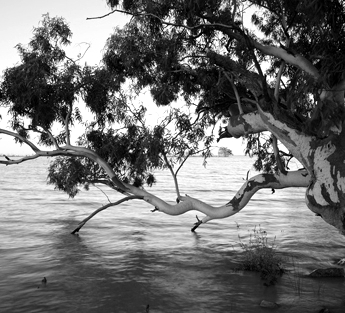Locals aid basin efforts
 The MDBA is running a new project that blends traditional First Nations knowledge with modern fisheries science.
The MDBA is running a new project that blends traditional First Nations knowledge with modern fisheries science.
The project - funded by the Murray-Darling Water and Environment Research Program (MD-WERP) - aims to enhance native fish habitat and connectivity within the Murray-Darling Basin.
Prior to European settlement, the Basin’s interconnected wetlands served as crucial breeding grounds for native fish. However, the increased demand for water has since isolated many rivers and creeks from these wetlands.
The Fish for Futures collaboration involves local First Nations groups, including the First People of Millewa Mallee Aboriginal Corporation (FPMMAC), and the Victorian Fisheries Authority.
Together, they aim to restore these natural habitats and improve fish movement across the Basin.
The project focuses on understanding how native fish, specifically golden and silver perch, respond to environmental water delivery in wetlands.
Managed wetlands will be utilised as nursery ponds, where tiny fingerlings will be introduced following the watering of the wetlands with Environmental Water.
This method simulates the natural breeding cycle of these fish. After spending a few months growing in these productive areas, the fish will be tagged and relocated to nearby rivers and creeks. The tagging will enable researchers to track the movements of the fish once released into the wild.
The Victorian Environmental Water Holder (VEWH) supports the project by delivering water aimed at achieving ecological outcomes, including supporting fish nurseries.
The 12-month trial will see data and knowledge shared publicly, with the goal of further developing and expanding the project.
Mike Gilby, a member of the MDBA’s Basin Community Committee and Sustainable Rivers Audit & Outlook First Nations Leadership Group, describes this initiative as “community-based fisheries management on Country through citizen science”, and says he hopes it “can be taken up by others in managing stocked fisheries on Country”.
The project also involves the use of traditional methods, such as scoop nets, in collaboration with scientists.
“We’re using cultural-based fishery knowledge – including traditional scoop nets – to capture fish safely, in collaboration with scientists. It’s a project that combines both traditional and non-traditional fisheries knowledge and understanding, to allow fish to move through the Basin,” Gilby said.
Research outputs from this project are expected to benefit water, fisheries, and cultural management across various organisations.
These include the Murray-Darling Basin Authority (MDBA), the Commonwealth Environmental Water Holder (CEWH), Parks Victoria, Victorian Fisheries Authority, NSW Fisheries, SA Fisheries, and several First Nations groups such as the First Peoples of the Millewa and Mallee, Barapa Barapa, and Wemba Wemba. Additionally, Mallee and North Central Catchment Management Authorities, research institutions, recreational fishing organisations, and habitat restoration groups like OzFish Unlimited stand to gain from this collaborative effort.








 Print
Print